Coronavirus fallout: Rohingya children at growing risk of trafficking

Amid worsening socioeconomic conditions caused by coronavirus, the Rohingya children living in the world's largest refugee camp in Cox's Bazar face heightened risk of violence including child trafficking, child labour and child marriage, child rights organization Educo said today.
More than 42 Rohingyas have been infected and three have died of coronavirus in the refugee camps. However, Educo says that these are conservative figures, highlighting that numbers could be much higher.
It says accurate information about the illness and measures to prevent its spread is failing to reach most people in the camps.
"We need to understand that Rohingya children in the refugee community were already facing various forms of violence and safety risks due to the desperate living conditions in the camps," said Matiur Rahaman, Educo Cox's Bazar emergency response head of mission in a statement yesterday.
"It is appalling that the pandemic has created an even bigger crisis within an existing crisis for Rohingya children."
Rahaman adds Rohingya children are now cut off from the outside world as schools are still shut down, and many of them do not have access to learning alternatives.
"We know from experience that children are likely to suffer violence in their homes and communities as families face extremely uncertain times. It is difficult to imagine this level of isolation for children who are already living in remote camps," he said.
For example, Mosharoffa, 12, a refugee living in Cox's Bazar told Educo there is no peace in the block, but only fear.
"I can't go out anywhere, the market is closed, so there is no fish curry, so I can't eat any good food even if I want to. I am afraid that if I go to the doctor, I might be infected by a person with coronavirus."
Matiur Rahman says it is only a matter of time before a larger outbreak happens in the Rohingya camps. Therefore, there is an acute need for hygiene kits and personal protective equipment such as facemasks, disinfectants, and hygiene kits to prevent children from getting infected.
"We know that many people here do not have access to reliable information, and this is what we need to address urgently," he said.
Under such reality, he said Educo's Covid-19 emergency response funded by Childfund Korea will focus on distribution of hygiene kits to 2,000 households in the refugee camps, provision of medical grade personal protective equipment (PPE) for health facilities and isolation wards in the secondary health facilities, provision of need-based mental health and psychological support to vulnerable children and adolescents.
It will also provide unconditional cash support to the host communities in Cox's Bazar district.
To protect children and adolescents from further safety risks, Educo will implement an information drive to disseminate Covid-19 prevention and response information and child protection messages, the charity said.

 For all latest news, follow The Daily Star's Google News channel.
For all latest news, follow The Daily Star's Google News channel. 

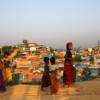
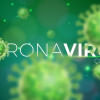
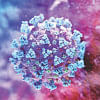
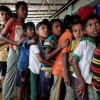
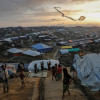


Comments